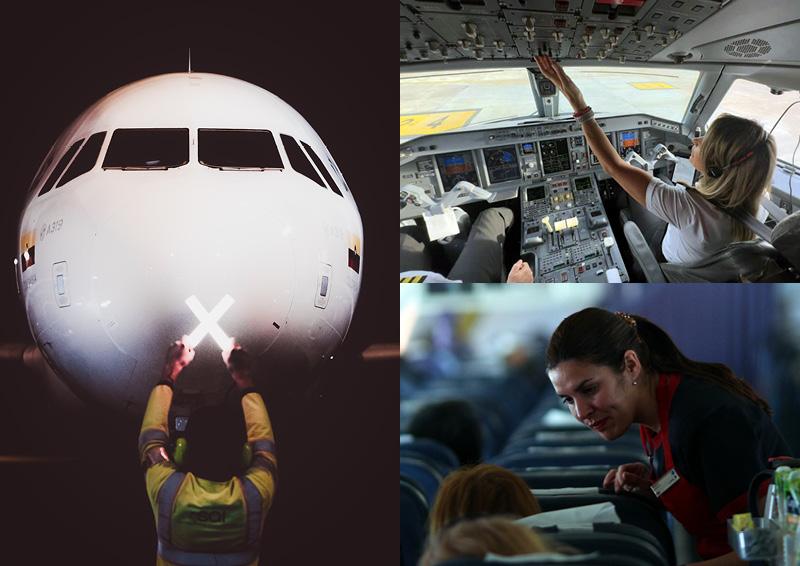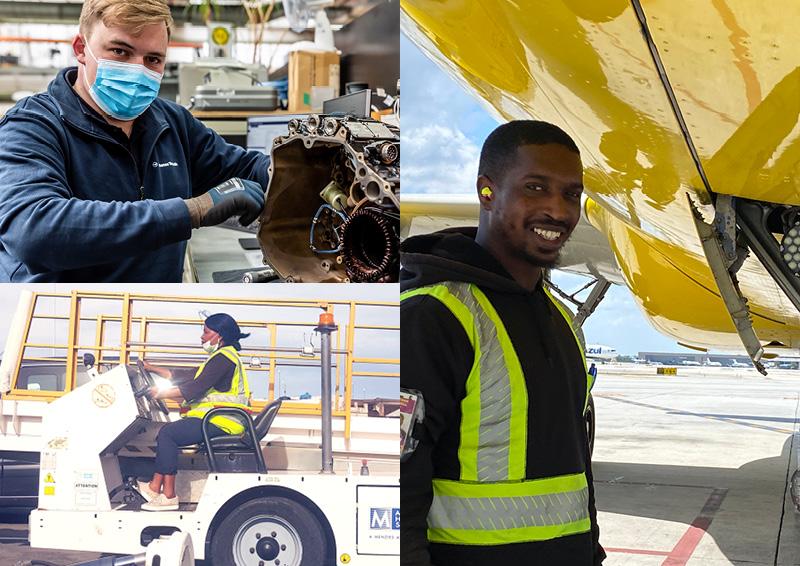Civil Aviation
Structural changes over the past 40 years including privatisation, de-regulation and fragmentation have created an unsustainable aviation industry – economically, socially and environmentally. We are building an aviation industry with good union jobs, gender equity, strong regulation, high health and safety standards, a fair and transparent digital future and a genuine pathway to net-zero emissions.
ISSUES
The aviation industry is lurching between crisis and chaos. Deregulation and intense competition have created a fragile aviation ecosystem, unprepared to withstand the frequent shocks and downturns that define our industry. Aviation workers have paid the price of each of these crises – with our union rights, employment and safety standards, and working conditions worsening over the past four decades.
Employment conditions and occupational health and safety are interlinked with the overall safety of the aviation industry. Workers through our unions must be empowered to identify and address the challenges that face the industry – across health and safety, digitalisation, sustainability and beyond. The ITF is leading the call for a safer, more resilient and sustainable global industry. Together with our affiliates we are calling for ‘A new deal for aviation’ built on five pillars.
OUR PRIORITIES
REGULATION
SUSTAINABILITY
DIGITISATION
RIGHTS
- SAFETY
Contact us

The ITF’s Civil Aviation Section is securing a new deal for aviation by:
- Influencing international policy institutions including ICAO, ILO, OECD and other global and regional bodies by raising key issues facing aviation workers across deregulation, health and safety, digitalisation and sustainability, and calling for aviation unions to be part of decision making at every level.
- Building industrial strength by supporting our unions to grow and develop capacity to campaign, bargaining and influence policy effectively.
- Standing in solidarity with unions and workers under attack or in crisis.
- Developing networks around common issues and priorities to leverage our collective strength.
- Engaging with global employer federations including IATA, ACI, ASA and CANSO on issues of common concern such as disruptive passengers, raising the attractiveness of the industry and sustainability.

The ITF’s ‘New Deal for Aviation’ framework for building an economically, socially, and environmentally sustainable aviation industry focuses on:
- Regulation: Strong regulation and industry-wide coordination
- Safety: A zero-risk culture that puts health and safety first
- Sustainability: A genuine pathway to a zero-carbon future industry
- Digitalisation: A digital future that works for workers and passengers
- Rights: Expanding union density and embedding trade unions in all levels of decision-making
We work across aviation’s occupational groups, through our cabin crew, ground staff and air traffic services sub-committees, and issue specific working groups and networks, like our remote towers working group and our civil aviation women’s network, to focus on the issues that matter for aviation workers.
停止对巴勒斯坦平民的暴力
必须立即停止压迫,尊重工人公民自由
ITF欢迎“永赐号”脱困的消息


The ITF Civil Aviation Section Committee brings together trade union representatives from across the aviation industry and across the world. We represent all aviation workers in the air and on the ground – from cabin crew, ground staff, pilots to air traffic controllers.
| Contact us | Follow us |
|---|---|
SECTION SECRETARY Gabriel Mocho Rodriguez | ITF Civil Aviation |
ASSISTANT SECRETARY Rhea Chatterjee | Aviación ITF |
Sara Nelson
Oliver Richardson
Edgardo Aníbal Llano.
Daniela Modonesi
Bill Mutoro
Ahmed Lamizana
Saqr Alhammadi
Jacqueline Tuwanakotta
Sandrine Nikolic-Fuss
Rodrigo Maciel
Edison Fraser
Jesús Ortiz Álvarez
Sissel Vian
Luigi Mansi
Ahmed Lamizana
Gary Peterson
Allal Babalahcen
Zazi Nsibanyoni-Mugambi
Karsten John Kristensen
Jason Ambrosi
Sandi McManus
Vanessa Johnson
Gary Peterson
Nick von Schoenberg
Teri O’Toole
Robert Hengster

The ITF Civil Aviation Section has 257 affiliates from 114 countries representing over 850,000 workers.





